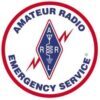KNW-128
Being “In Charge”
The Dangers of Being “In Charge” and the Dangers of “Following”
© 2004 Pat Spencer, KD4PWL
May be used freely for non-profit amateur radio use, please site www.kyham.net as source.
[ ] or strike through are corrections to the original article.
I’m a volunteer! I can do what I want. Well, Yes and No. It is all a matter of your level of seriousness and public perception. It also depends on your role within the ARES organization.
For those who are “coordinators and leaders,” you are in the spotlight. What you say and do is just as important as what you don’t say or do. If you chose to accept an appointment as a leader of a volunteer organization, you had best be serious. You will be confronted with both real world and real world, amateur radio expectations. In the real world, you are a coordinator of an entire organization that will have relationships with government agencies that exist in a professional environment and that have to contend with legal responsibilities to protect and serve the citizens of a particular geographical area. You are a ‘professional’ among professionals and their perceptions of you and your effectiveness is crucial to ARES and to ARRL.
They understand the home and family pressures experienced by volunteers however they don’t have sympathy for broken promises. Remember that they have incorporated amateur radio communications into their emergency plans and they’re counting on you. This is no place for “pie in the sky” salesmanship. Be realistic and tell the truth. For instance, if you can provide 100 people to help during a disaster, that is wonderful! If you can only provide 2, tell them that. Don’t assume that people will “come out of the woodwork,” to help when there is a major disaster affecting the community – hams included. You cannot count on that and neither can government agencies. Remember, they are counting on you to be realistic for their response planning purposes.
Another pitfall of being a coordinator is “not being around.” A volunteer you are and your home/job/family is the most important thing. However, you can’t accept responsibility and not be accessible to government agencies and the membership of your organization. If your life has changed and you don’t have the time/resources to lead; pass the torch. There is no shame in that and doing so is far more honorable than not doing your job as well as it should be done. It is a sign that you care because you want to see things accomplished with the energy of someone who has time.
“I’m a volunteer, and I will run things how I want,” does not work. You are not a supervisor at someone’s place of employment. One hundred percent of your “power” comes from your ability to be an effective team member that others will follow due to your ability to navigate the overall landscape. If you are not “a part of the team”, if you are not listening to input and if you are not acting upon changes in the environment in an effective fashion, you will look behind you to find only your shadow.
Wow! That is a lot of responsibility. Yes, it is. Volunteer organizations are very dynamic and are wonderful because of the energy poured into them by people who care. As a leader of volunteers, you can go to the Moon, or you can sink faster than the Titanic. Whether you have 2 or 2000 members, honest, committed effort by all will result in the most satisfying experience you can have. “You are part of a team who made a difference.”
ARES members also have dangers in participating within the organization. Like a coordinator, you are a volunteer who .must place their home and family first. However, unless there is an emergency, if you make commitments, fulfill them. Be honest with yourself about your ability to contribute. Do not take on the responsibility for a facility, agency or task if you cannot realistically fulfill your responsibilities. Like a coordinator, if your life’s situation changes and you cannot do the task as well as you think it should be done, pass the torch.
Another danger volunteers have to be wary of is being complacent with the status quo. “John Doe is the EC, he needs to ask me to do it.” Manure is available at most home and garden stores for reasonable prices. If you see a need, grab the manure…do something. Failure to try to help the situation can do as little as giving the organization a black eye or, at worst, could cause the loss of property or life. Don’t sit back and quarterback when you have not expended effort as a team member to help other ARES members and coordinators solve the problem. Otherwise, you will lose the respect of others. Being a team member is the key. Don’t go it alone, work with other members to accomplish the needs and goals of the group.
Consistent, honest effort and a common sense approach is the rule for all ARES coordinators and members. Be realistic about your capabilities, your limitations and your willingness to “get out of your recliner.” Failure to do so will result in lack of effectiveness of the organization, can result in unnecessary stress, and may create situations that might lead to negative personal feelings between volunteers.
Wow! That is some serious responsibility! Yes, it is. Serving the community is not a matter of “I am a volunteer, and I can do what I want.” It is a matter of “I am a member of a team, and other people count on me to help create a serious organization.”
Source: Kentucky Amateur Radio Web Site – www.kyham.net
That is the end of tonight’s training. Are there any comments or questions?
Thanks, this is (callsign) clear to net control.
Send corrections, modifications, updates or suggestions to k5prs@aol.com
